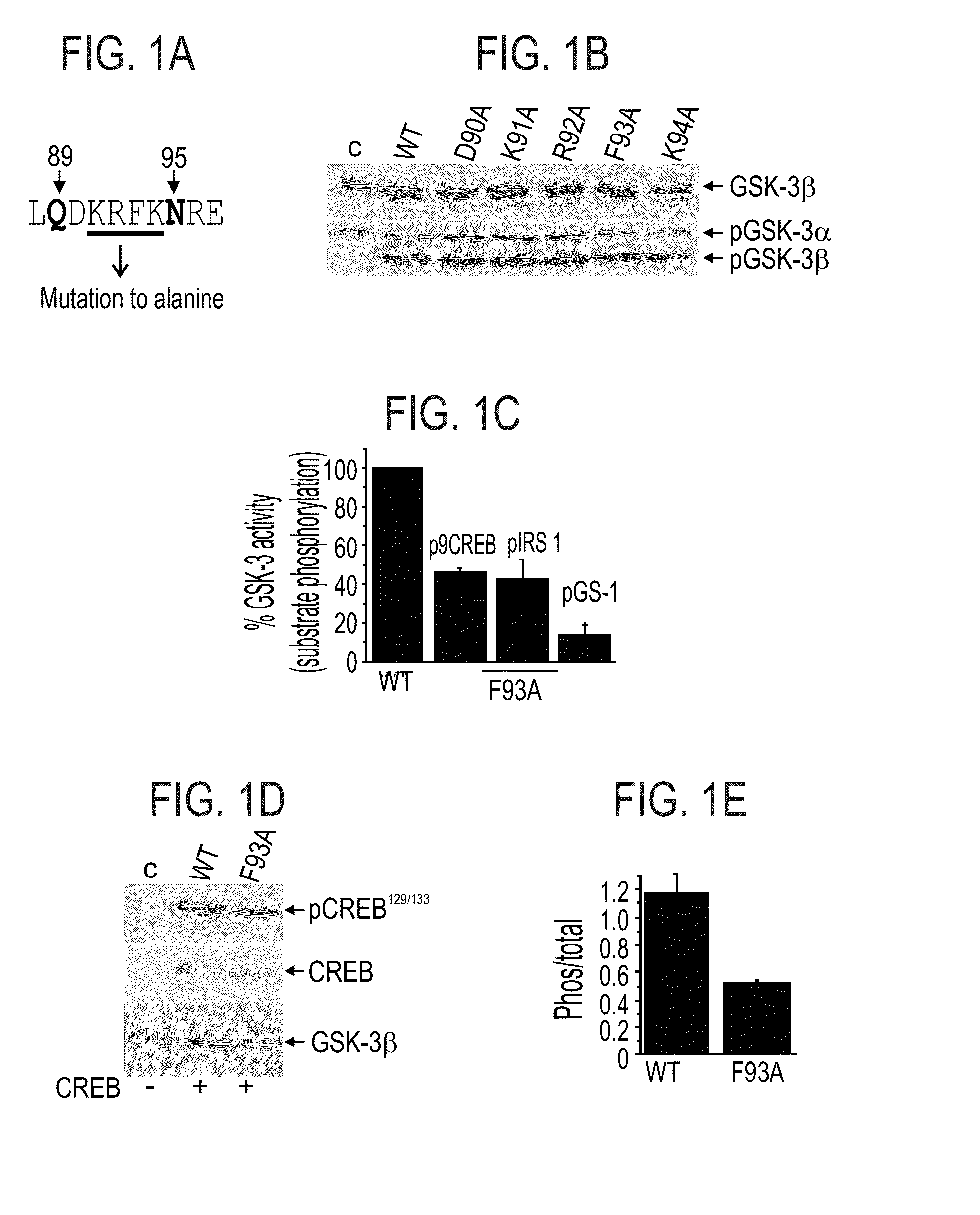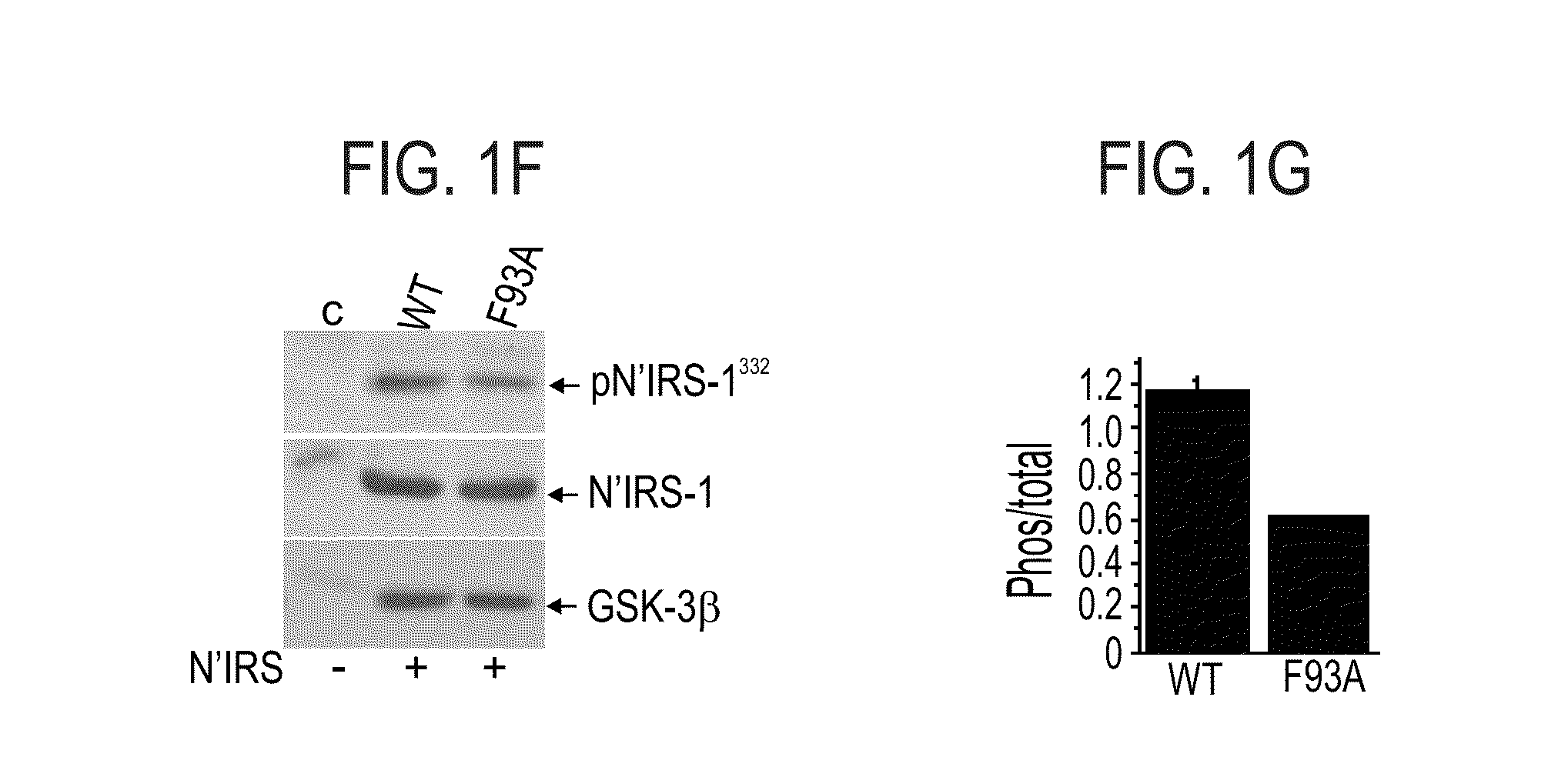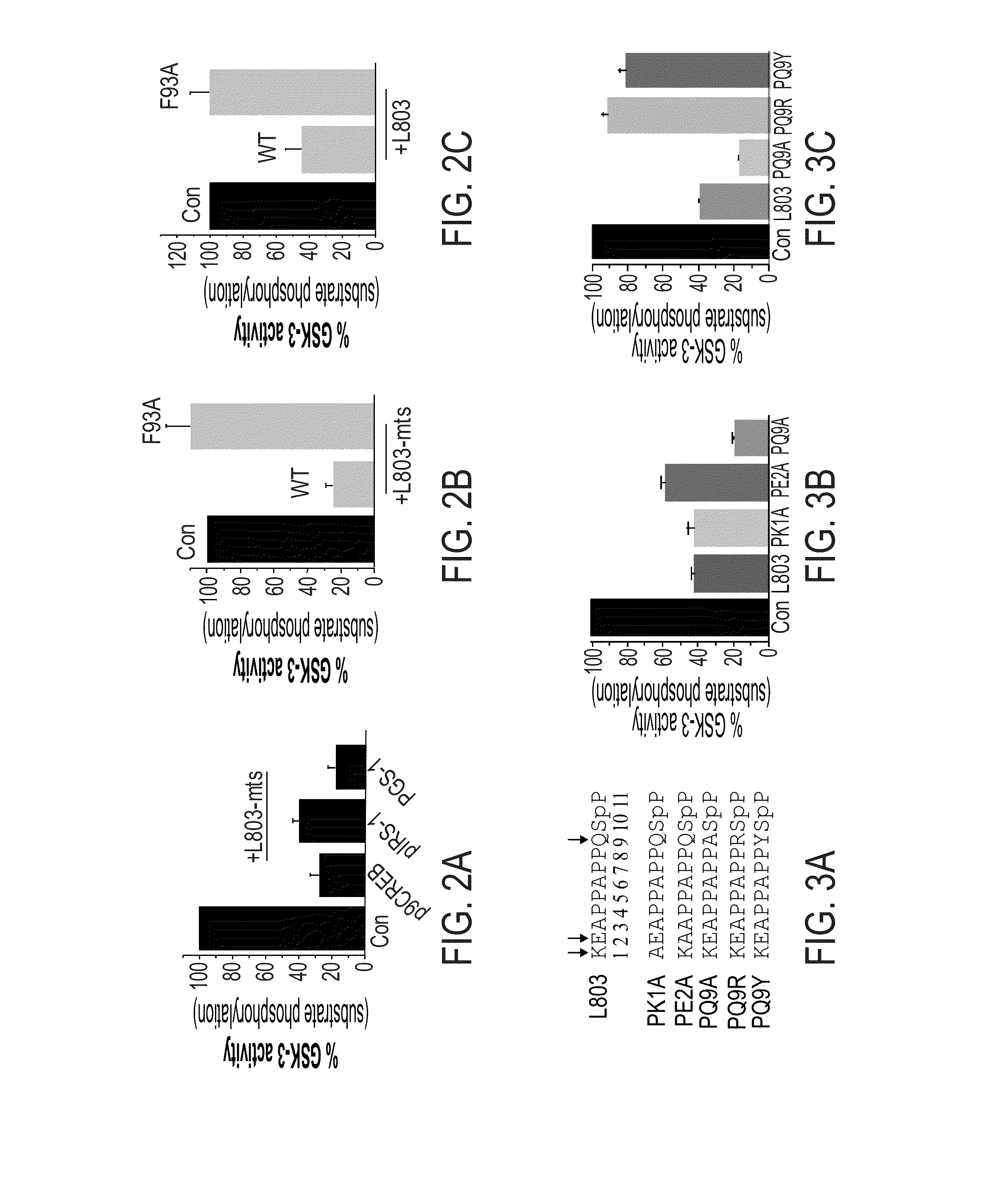Glycogen synthase kinase-3 inhibitors
a glycogen synthase and inhibitor technology, applied in the field of new products, can solve the problems of limited specificity of inhibitors, limited knowledge, and limited structural data, and achieve the effect of nominal inhibition of gsk-3 activity by substrates and limited specificity
- Summary
- Abstract
- Description
- Claims
- Application Information
AI Technical Summary
Benefits of technology
Problems solved by technology
Method used
Image
Examples
example 1
Defining a Substrate Binding Subsite in GSK-3
[0514]The Q89-N95 Segment:
[0515]The sequence segment delimited by Gln 89 and Asn 95 (see, SEQ ID NO:2), two residues that were found to participate in GSK-3 substrate binding [Ilouz et al. 2006, supra], forms a loop (termed herein 89-95 loop) that together with the conserved P-loop, defines the borders of a surface cavity.
[0516]To further explore the role of the 89-95 loop in GSK-3β substrate binding, each of the amino acid residues within this segment was individually mutated to alanine (see, FIG. 1A). HEK-293 cells were transiently transfected with cDNA constructs expressing wild-type (WT) GSK-3β (SEQ ID NO:1), D90A (SEQ ID NO:6), K91A (SEQ ID NO:7), R92A (SEQ ID NO:8), F93A (SEQ ID NO:9), R94A (SEQ ID NO:10) mutant proteins, as described in the Methods section hereinabove. Cell extracts were subjected to western blot analysis using either anti-GSK-3β or antiphospho-GSK-3 (Tyr 216 / Tyr 274 for α or β isoforms respectively) antibodies. Co...
example 2
Novel Modifications of GSK-3 Peptide Inhibitors
[0531]Replacing Polar or Charged Amino Acid Residues with Hydrophobic Residues Increases Inhibition Activity:
[0532]In view of the fact that Gln 89 and Asn 95 did not contribute to binding of L803 or L803-mts to the catalytic site of GSK-3, the involvement of hydrophilic interactions in the GSK-3 binding site was tested.
[0533]L803 includes two charged amino acids Lys1 and Glu2, and a polar residue, Gln9 (see, SEQ ID NO:4). Thus, novel peptide variants were synthesized, in which each of these residues, Lys 1, Glu2 and Gln9, was individually replaced by alanine. These novel variants are termed herein PK1A (where Lys1 was replaced by alanine; SEQ ID NO:11)), PE2A (where Glu2 was replaced by alanine; SEQ ID NO:12), and PQ9A (where Gln9 was replaced by alanine; SEQ ID NO:13). These modification to the sequence of the L803 peptide are shown in FIG. 3A, where the positions that were changed to alanine (residues 1, 2 and 9) and the substitutions...
example 3
In Vivo Studies
[0548]C57BL / 6J mice (12 week old; obtained from Animal Facilities at Tel Aviv University) were treated with L803-mts or L806-mts via a nasal administration (60 μg peptide / per mouse / per day) for 3 days. Non-treated animals served as control. Brains were removed and hippocampus was homogenized in ice-cold ‘buffer G’(20 mM Tris pH 7.5, 10 mM β-glycerophosphate, 10% glycerol, 1 mM EGTA, 1 mM EDTA, 50 mM NaF, 5 mM sodium pyrophosphate, 0.5 mM orthovanadate, 1 mM benzamidine, 5 μg / ml leupeptin, 25 μg / ml aprotinin, 5 μg / ml pepstatin, and 0.5% Triton X100). Equal amounts of proteins (50 μg) were subjected to gel electrophoresis, transferred to nitrocellulose membranes, and immunoblotted with anti-β-catenin antibody. Hippocampus β-catenin levels were determined by western blot analysis as described.
[0549]The obtained Western Blot analyses are presented in FIG. 7A (for L803-mts and FIG. 7B (for L806-mts). Expression levels of GSK-3β is also shown. As shown in FIGS. 7A and 7B, e...
PUM
| Property | Measurement | Unit |
|---|---|---|
| Fraction | aaaaa | aaaaa |
| Acidity | aaaaa | aaaaa |
| Hydrophobicity | aaaaa | aaaaa |
Abstract
Description
Claims
Application Information
 Login to View More
Login to View More - R&D
- Intellectual Property
- Life Sciences
- Materials
- Tech Scout
- Unparalleled Data Quality
- Higher Quality Content
- 60% Fewer Hallucinations
Browse by: Latest US Patents, China's latest patents, Technical Efficacy Thesaurus, Application Domain, Technology Topic, Popular Technical Reports.
© 2025 PatSnap. All rights reserved.Legal|Privacy policy|Modern Slavery Act Transparency Statement|Sitemap|About US| Contact US: help@patsnap.com



